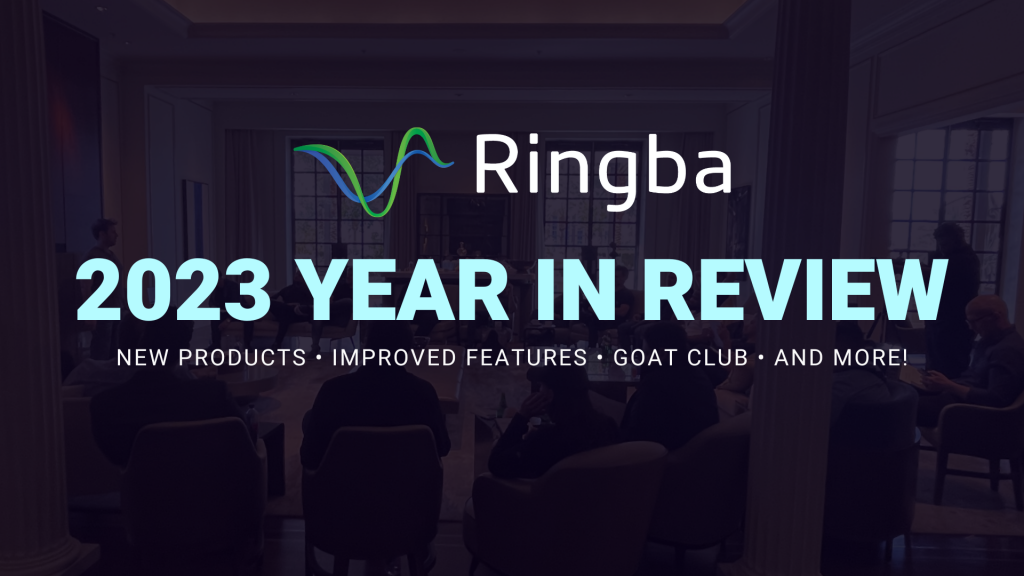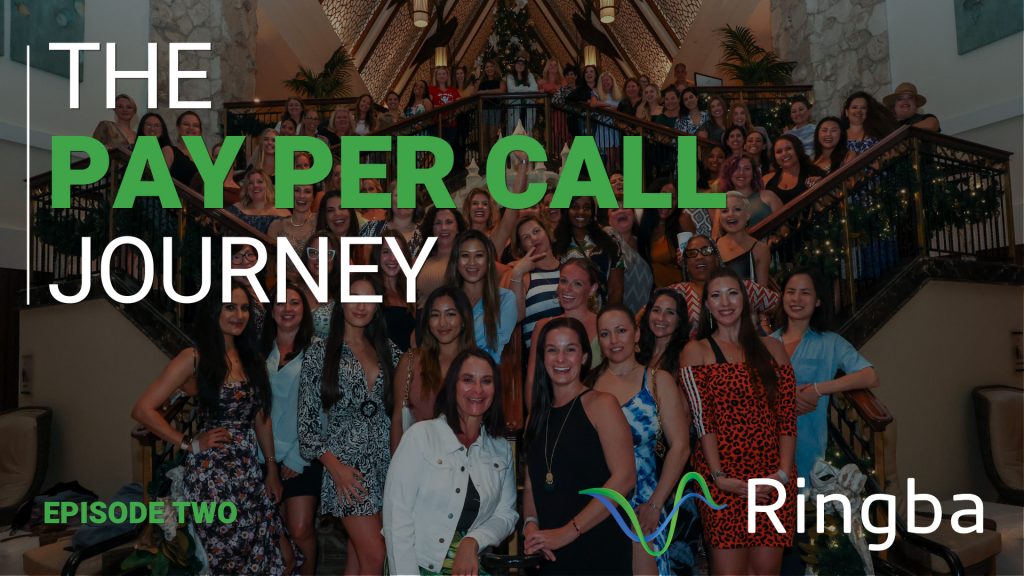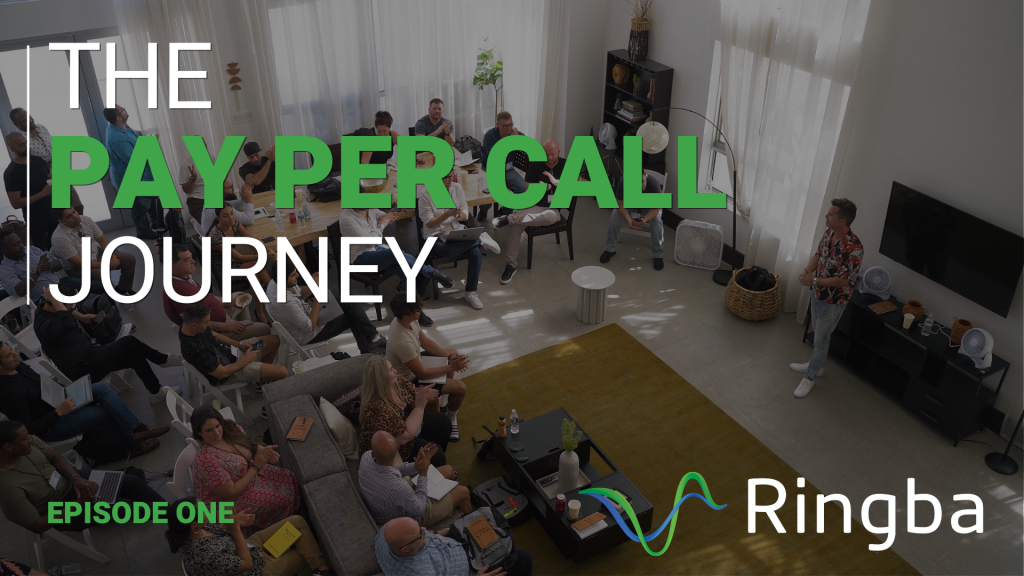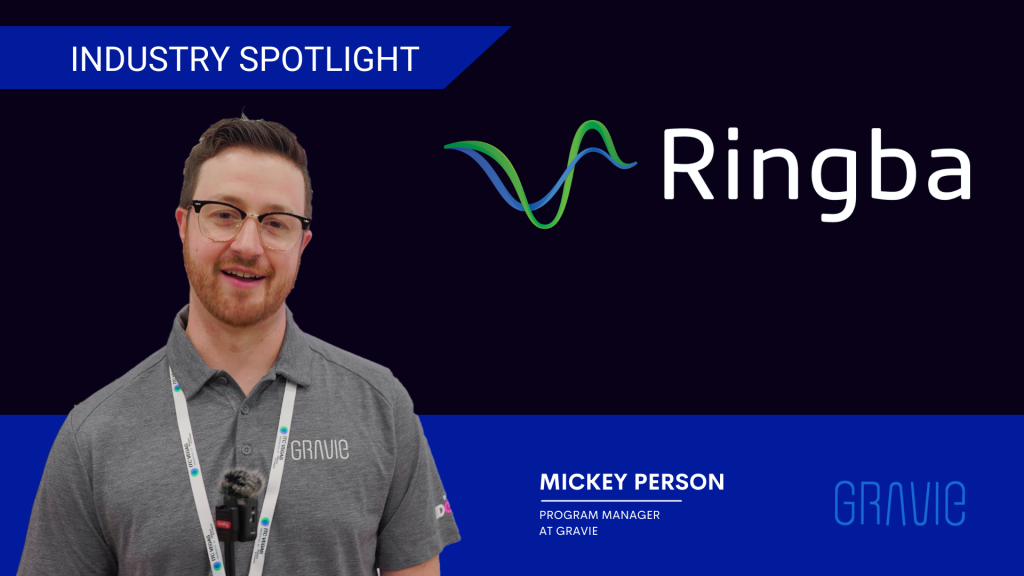A Pay Per Call Network is a company or platform that manages call campaigns on behalf of advertisers and generates calls through the network of publishers.
Pay Per Call Networks act as intermediaries between buyers and sellers of calls, managing the relationships on both sides, and creating a closed private ecosystem that allows them to make a margin on every call.
With the call market rapidly growing every year, Pay Per Call Networks are not going anywhere, but they’re going to have to find innovative new ways to maximize their yield and provide their partners with more value to differentiate themselves from competitors.
In this guide, you will gain a complete understanding of how a Pay Per Call Network operates, how to work with them as an affiliate or advertiser and how to optimize your conversions and improve your margins by routing your call flow to multiple networks.
Contents:
– How Pay Per Call Networks Function
– Potential Team Members
– How Pay Per Call Networks Operate
– Pros and Cons of Working with a Pay Per Call Network
– Getting Started with Pay Per Call Networks
– Optimizing Your Call Flow by Routing to Multiple Networks
– Resources for Finding Pay Per Call Networks
How Pay Per Call Networks Function
The purpose of a Pay Per Call Network is to take the business development burden off of the affiliate and call buyers while reducing the risk of everyone involved.
Pay Per Call Networks do this by finding multiple buyers and sellers of calls to gain as much coverage and capacity as possible and by using technology and manpower to manage both ends of the value chain.

For every campaign, a Pay Per Call Network is going to be managing multiple Buyers and multiple Sellers on both ends of the offer. Sellers (publishers or affiliates) are getting paid for generating inbound calls to the campaign and Buyers (or advertisers) are buying the calls and paying the Network.
Pay Per Call Networks are constantly fighting for traffic and capacity from their sellers and buyers, looking for any edge they can get to attract more business.
Potential Team Members
When you partner with a Network, depending on their size and scale, they are going to have a several different team members that all have different job requirements.
Publisher Team
Some affiliates and publishers may be really easy to work with, others may not. That’s why you need professionals to keep track of all their calls and work with them to send more volume or run new campaigns.
Affiliate Managers are responsible for working with publishers, getting them to drive calls, and collaborating with them to see how many calls they can send and what their capacity is. Affiliate managers are on the front lines of sales negotiation and usually have some wiggle room on pricing so they can stay competitive and offer better terms to their best affiliates.
Networks are competing with media companies, marketing agencies, other networks and everyone else in the space for clients and calls so an affiliate manager’s role is to build strong relationships with publishers, provide advice and collaborate with affiliates to drive more calls.
If you’re a publisher or an affiliate, it’s important you have an extremely good rapport and regularly communicate with your affiliate manager. They are there to help you grow your business and you should always ask your account manager for a payout bump so you can improve your margins and make your campaigns more profitable.
Team members with ‘BizDev’ titles are usually going to be a little bit more senior. They are going to focus on relationships with other networks. This is because networks broker business back and forth or because they are working with clients that need a higher-level person to negotiate with and manage their day-to-day account activities.
The purpose of a Publisher QA Team is to listen to phone calls from affiliates and make sure traffic sources and landing pages follow all the rules of a campaign. They preserve the integrity of a campaign by making sure affiliates are sending high quality calls to their buyers and diving into the nitty gritty details in call reporting.
Larger networks will often have dedicated team, in-house or outsourced, that performs quality assurance by regularly listening to calls and reviewing assets. At smaller networks, you’ll often find affiliate managers doing compliance and quality control for their affiliates. This may be okay in some circumstances but an account manager cannot effectively manage their affiliates while also doing compliance.
If you’re an affiliate, you should ask your network about their quality assurance process and how they review the calls you’re sending. A good network will have a detailed process and (hopefully) a dedicated team that will be listening to and reviewing the calls you are sending.
A network without a dedicated quality assurance and compliance team could be a warning sign that the network is working with low quality buyers that are not as concerned with quality. These types of buyers are typically going to pay less money and will almost certainly have a lower conversion rate.
In the Pay Per Call space, there are not enough affiliates driving calls to fill all the capacity of the buyers. To mitigate this, many networks have built their own Internal Publisher Team. A lot of these networks also call themselves agencies and they have a dedicated team of media buyers, graphic designers, and web developers dedicated to generating inbound calls to their buyers.
This is a huge indicator of the opportunity size in the space, networks are so desperate to fulfill the massive demand for inbound calls buyers that they have to go out and generate the calls themselves.
One of the benefits of having your own internal publishing team is that you don’t necessarily need Publisher QA team if you are the one generating all the phone calls. Your internal media buying team will already be following the rules for a campaign so you’re not going to have any front-end compliance issues.
Advertiser Team
The Advertiser team works with call buyers and looks for more call buyers. They do business development on the call buyer side and ensure the calls they are selling meet the campaign requirements.
Advertiser Managers work with call centers, call centers teams, other brokers, other networks, to help them fill capacity for campaigns when they need more inbound phone calls. They are responsible for managing the back-end relationships of the network with call buyers and they are not typically going to work directly with publishers.
Smaller companies may have someone who is managing both but those people are going to be spread and again, this is a risk factor you should be aware of. This could be an indicator that their buyers aren’t concerned with quality or that the network is brokering calls to other networks and simply taking a cut.
The Advertiser QA Team performs compliance and quality control for buyers and works closely with their account managers to identify issues and resolve disputes.
Are there agents taking calls? Are those agents committing any problems or breaking any of the rules? Are they committing call back fraud? Are the agents well trained or are they burning phone calls because they don’t know what they are doing? Are they cherry picking phone calls and hanging up on a perfectly good phone call so they don’t have to pay for a duration-based campaign?
The QA team on the Advertiser side is keeping the call buyers honest while the Publisher QA team is keeping the call sellers compliant.
Operations Team
The purpose of the Operations Team is to keep the entire company running smoothly and handle the day-to-day business operations.
On the Operations Team, there will be an Accounting and Finance department where you’ll find the Comptroller, Accounts Receivable and Accounts Payable who are responsible for invoicing buyers and sending payouts to affiliates.
The Operations Teams often includes a Network Manager who is responsible for running both the advertiser team, the publisher team and probably works with the operations team in the finance department on a regular basis. They will have keen insight into both the supply and demand side of the network.
A Director of Business Development and/or Vice President of Business Development is responsible for running the business development teams, making deals and looking for bigger opportunities.
Depending on the scale and size of the network, you may also find Software Developers, Marketing Managers, Human Resources, and other team members who are in charge of different portions of the business and assisting with day-to-day business operations.
Management Team
The Management Team consists of senior-level leaders who are responsible for strategic planning, decision-making, achieving goals and communicating vision.
Some of the key roles in the management team include:
– Chief Executive Officer (CEO) who manages the entire organization.
– Chief Financial Officer (CFO) who runs the finance department.
– Chief Marketing Officer (CMO) who runs the marketing department.
– Chief Operating Officer (COO) who runs the day-to-day business operations.
– Chief Revenue Officer (CRO) who is responsible for everything that brings money into the company.
– Chief Technical Officer (CTO) – who is responsible for building software, technology and integrations.
How Pay Per Call Networks Operate
These are some of the responsibilities and daily concerns of a Pay Per Call Network:
Call Sellers (Affiliates)
– Traffic Sources
– Marketing Methods (Compliance)
– Consistency of Volume
– Communication
– Payout
– Quality Assurance
– Accounts Payable
For Call Sellers, a pay per call network is going to be looking at the traffic sources and marketing methods that affiliates are using the generate their calls. Every pay per call campaign has specific rules and guidelines that every affiliate needs to follow if they want to get paid.
Pay Per Call Networks work with lots of publisher and it can be hard to find reputable buyers for certain types of campaigns. They are going to be extremely concerned with call quality and making sure their affiliates follow the rules because they want to maintain a strong relationship with their buyer.
If you’re a publisher, you need to understand that this isn’t like a typical affiliate offer. There is an actual human answering your calls so buyers will immediately know if your quality is low or if you are violating the campaign guidelines. The feedback loop for buyers to report an issue is much quicker than other types of affiliate offers. That is why it is absolutely essential that you know the rules, follow the rules and always communicate.
Networks are also going to be concerned with the consistency of call volume. Call Centers live and die by consistency because they have to pre-schedule labor and make sure they have someone available to answer the phone. If you are constantly fluctuating your call flow, a Pay Per Call Network is not going to be happy because they can’t predict the consistency of your call volume and it becomes harder for them to work with their buyers.
Communication in the pay per call space is a crucial skill and when you communicate well, others are going to take you more seriously and will be more likely to collaborate with you. Starting a campaign and sending traffic without talking to a publisher manager first is a recipe for disaster. The Call Buyer team is also going to be concerned with Quality Assurance (making sure affiliates are compliant) and Account Payable (making sure affiliates get paid).
Internal Publishers
– Asset Creation
– Media Buying
If the network has an internal publishing team generating calls to their offers, they are going to be focused on creating branded assets, running media buying campaigns, generating leads and figuring out how to get consumers to pick up the phone.
Some networks even have their internal media buying team teaching their affiliates how to be successful. They share all the information they have to make their publisher base stronger and their affiliates smarter are committed to the long-term success of their partners.
Call Buyers (Advertisers)
– Hours of Operation
– Capping and Volume Limitations
– Concurrency
– Payout
– Campaign Conversion Requirements
— Minimum Duration
— Geographic Locations
— Acceptable Demographics
— IVR Responses
– Quality Assurance
– Accounts Receivable
On the other side of this, you have your call buyers and your advertisers. The call buying team is responsible for working with buyers, negotiating contracts, re-negotiating rates, listening to calls, reviewing quality and making sure their buyers are paying their bills on time.
We want to stress: It doesn’t matter if you are an affiliate, an advertiser or a network account manager, you should always be negotiating. If your quality goes up, ask for more money so you can ramp up your traffic. If your quality goes down, ask for more money so you can make your campaign more profitable!
Account managers will work with their buyers to manage hours of operation, capping and volume limitations and concurrency and all the qualifications of a specific buyer campaign and their conversion requirements.
Teams working on the Call Buyer side are going to be managing campaign conversion requirements like the duration of the call and when it converts, the geographic locations they accept, the consumer demographics they accept and IVR responses they expect.
Call Buyers will also have quality assurance people that are listening to calls, making sure their agents are trained properly and keeping everyone in the value chain honest.
One of the most important parts to managing a pay per call network is accounts receivable. Networks need to be on top of their finances and accounts receivable.
If you are running a Pay Per Call Network with accelerating the payment terms to your affiliates, you are essentially becoming a factoring company and there’s a lot of risk in exposure with your accounts receivables.
As an affiliate, if you don’t get paid on time and no one reached out to you, that’s a warning sign you need to identify. It could mean that maybe the network isn’t good with their finances or maybe the buyers aren’t paying them on time.
It’s a sticky situation but affiliates should judge networks by how they handle payment terms, how they communicate and if they pay on time. If anything wrong goes wrong with those, that’s smoke and you should start looking for the fire.
Working with a Pay Per Call Network
There are numerous benefits to working with a pay per call network as an affiliate but there are also some disadvantages you need to be aware of. There are some fantastic networks with amazing teams and you should almost definitely work with them. They are very helpful, they are useful, and they can do a lot to help you in your journey to grow and scale.
If you are looking to get into this space and you want to be successful, you need to pay attention to who you are doing business with and how they do business. Protect yourself, cover your ass whenever possible and always be aware of what your partners are doing and how they are operating.
This isn’t exclusive to pay per call networks either. It’s about every company you do business with. Are they accessible? Do they communicate well? Do they publicly interact with the community? Those are the type of companies you want to do business with because those are the relationships that are going to help you achieve long-term growth and stability.
Pros of Working with Pay Per Call Network
– Faster payments
– Less financial risk (Sometimes)
– Business development support
– Compliance (Sometimes)
– Buyer management
– Greater geographic coverage
– Wide offer selection
– Exclusive campaigns
Networks will have a set schedule for issuing payouts to publishers. As an established business, they’ve already built an accounting process for managing cash flow, buyer invoicing, and administering payouts. This means they will generally be more willing to issue faster payments or have more flexibility when it comes to payout bumps. As an affiliate, this means there is often less financial risk when working with a network because they are handling all the buyer relationships on the back-end so you can focus on generating calls, increasing your volume, and getting paid.
A great Pay Per Call Network provides business development support and takes care of managing client relationships, building buyer networks, ensuring compliance and chasing down payments from buyers. This is particularly important if you’re a solo affiliate because they’re going to be doing all the leg-work for you. They have an entire team managing the day-to-day which means you can spend your time on what’s important; generating more calls.
Pay Per Call Networks give affiliates access to a wide offer selection in different verticals and niches. Most call centers and direct buyers only work on one campaign so you can only sell them a specific type of call. Some networks take this a step further by creating ‘exclusive offers’ and ‘branded campaigns’ with their direct buyers. Affiliates can’t run these campaigns or access those direct buyers unless they are approved on the network. If you find a network with a branded offer or exclusive campaign, they probably know what they’re doing and you should look into working with them.
Cons of Working with a Pay Per Call Network
– Harder to work with when new
– Lower margins (Networks take 35-100%+)
– Lack of visibility
– No control over buyers
– No control over QA process
– Favoritism
– Little recourse over disputes
– Potential mismanagement of funds
When applying to a network, you need to be on top of your game if you want an established network to take you seriously. If you are new to the pay per call space, it is going to be a lot harder to get started and work with a pay per call network and quite frankly, it should be.
This isn’t like a typical affiliate campaign, Pay Per Call is an entirely different business model. Networks are generally going to be very hesitant to work with a publisher who has never run a pay per call campaign before. If you’re new to the space, it’s even more important that you put in the extra effort to communicate well and prove that you’re worth their time. Account managers aren’t going to work extra hard to bring on a newbie who doesn’t know how anything about the space because they’re assuming all the risk if it doesn’t work out.
Payouts from networks are going to be lower margin than working with direct buyers who will pay a lot more money for your call traffic. On average, networks are going to be taking 35%-100% margin and if they have direct buyers, it could be even higher.
Pay Per Call Networks need to take a little bit higher margin than others the affiliate space because phone calls have a cost associated with them. They have to pay for things like call tracking and call recording which costs more than traditional click and conversion tracking. When you have your own call tracking software (like Ringba), you have the ability to optimize your call flow between multiple networks and your own direct buyers so you can improve your profit margins and ramp up your call volume.
Without your own tracking software as an affiliate, you will have a complete lack of visibility into who the buyers are and what their concurrency is. You’re at a disadvantage when you have to rely on the network’s tracking and you won’t know if they are telling you the truth about the buyer or the capacity they can handle. You’ll have no control over the buyers and quality assurance process which means you can’t work with them to train their agents better or make sure you are getting paid for every call. Without visibility, control and access, you are at the mercy of the network and you’ll have less opportunity to make your campaigns profitable.
Whenever you’re dealing with humans, there is going to be favoritism. It happens. Your calls may be higher quality but if an affiliate manager likes someone else more than you, they may not give you the capacity you want or the payout you need. They’ll also be less likely to take your side in a dispute.
Affiliates working with a network are a severe disadvantage when it comes to buyer disputes and often have little recourse if they’re ever accused of non-compliance. Networks and account managers will almost always side with the buyer when they dispute a call. The best way to keep everyone honest is to use your own call tracking software! If a buyer ever disputes a legitimate call, you’ll have your own reporting and recordings to review and provide as evidence.
There’s also a financial risk in potential mismanagement of funds by the network. You don’t know how the financial system at the Pay Per Call Network operates and you also don’t know if their buyers are delinquent. For example, If a network pays their affiliates before they get paid from their buyers, it’s possible they may not be in a healthy financial situation.
It’s more common for smaller networks to run into mismanagement of funds than the larger networks, but larger networks can fall over too. The only way to gauge if the financial health of a network is to find out if they pay their affiliates on time and if they communicate well.
Getting Started with Pay Per Call Networks
Before you can start sending calls, you need to find pay per call networks to partner with. Why? Because it gives you leverage, flexibility and the ability to scale your call campaign. You can gain even more advantage and improve your profit margins by finding local pay per call clients or direct buyers to sell to.
Globally, 25% of all calls anywhere in the world abandon due to lack of capacity (Source). Call flow is entirely unpredictable and there isn’t an easy way to solve this problem, you simply need to be aware of it and build your business appropriately.
Just because a Network has multiple buyers, large geographic coverage, and claims they have plenty of capacity does not mean they’re going to have 100% coverage. Pay Per Call Networks need to try and keep all their buyers at maximum capacity at all times to preserve access to that capacity to maintain their relationships.
This means rarely do they have large amounts of overflow capacity to handle spikes in call flow. If they do, its to lower or poor performing buyers they prefer not to send the volume to, thus affecting your conversion rate. Otherwise their buyers would have agents sitting idle, creating significant overhead, and lower agent productivity. Call centers and buyers always want as little idle time as possible.
For example, if you’re sending calls to a network and another Affiliate ramps up their flow, you may start dropping calls because the buyers don’t have enough capacity to handle the spike.
Networks will not reimburse affiliates for advertising costs if they don’t have the capacity to handle your calls, and most of the time they’re not going to notify you that they’re overflowing because its not in their best interest for you to be out looking for more buyers. Luckily for them, most Affiliates don’t realize this is happening so they don’t implement their own tracking platform to watch the network’s activities.
A campaign inside of a network may have 1 buyer, 5 buyers, or 50 buyers depending on the type of campaign and the geographic restrictions. Rarely will a network transparently tell you how many buyers they have, how much capacity they have, and what their other publishers are sending. Regardless of campaign, most routing plans have similar properties. In the below example, we’ll assume that the Network is paying you $8 per call as long as it has a 2 minute minimum call duration.
Network Routing Plan Example:

Optimizing Your Call Flow by Routing to Multiple Networks
Call tracking software allows you to create your own network of buyers and load balance your call flow across them based on whatever criteria makes you the most money. It also gives you complete control and full visibility of your complete call flow from end to end.
Multi-Network Routing Plan Example (Before):

In this example, Network A is claiming they can handle unlimited call capacity, 24/7. This is entirely not possible and a warning sign you should be aware of. Anyone that claims they can take unlimited amounts of calls isn’t giving you the full story. Remember, humans have to be available to take every call or the callers will hangup!
Network B has given you a cap of 100 calls per day to fill without providing any concurrency limits. This is also a problem because they’re not telling you how many simultaneous calls they can handle into their buyers.
Both Networks claim to have nationwide coverage and will pay out after the call length has reached 1 minute and 30 seconds.
Let’s assume you were able to generate 100 calls and used your call tracking platform to load balance the calls evenly to both networks. The great thing about calls vs clicks is you really only need a few of them to understand the productivity of a Network’s backend buyers. The following results turned out to be drastically different.
Multi-Network Routing Plan Example (After):

Based on a few simple metrics it’s absolutely clear that Network B is a better partner, and statistics like this are very common when testing.
Resources for Finding Pay Per Call Partners
There are hundreds of performance marketing companies running pay per call campaigns but this certainly doesn’t mean you should work with them all. At Ringba, we’ve built strong relationships with the best pay per call companies in the space to help you with business development. We’ve also created and curated several resources that teach you everything you need to know about pay per call and how to be successful in the industry.
– PayPerCallNetworks.com | Instant Introductions to the Best Pay Per Call Companies
– PayPerCallers.com | The Only Forum Dedicated to the Pay Per Call Industry
– Pay Per Callers Show | Interviews and Insights with Pay Per Call Experts
– Pay Per Call Masterclass | 25+ Hours of Free Pay Per Call Training







